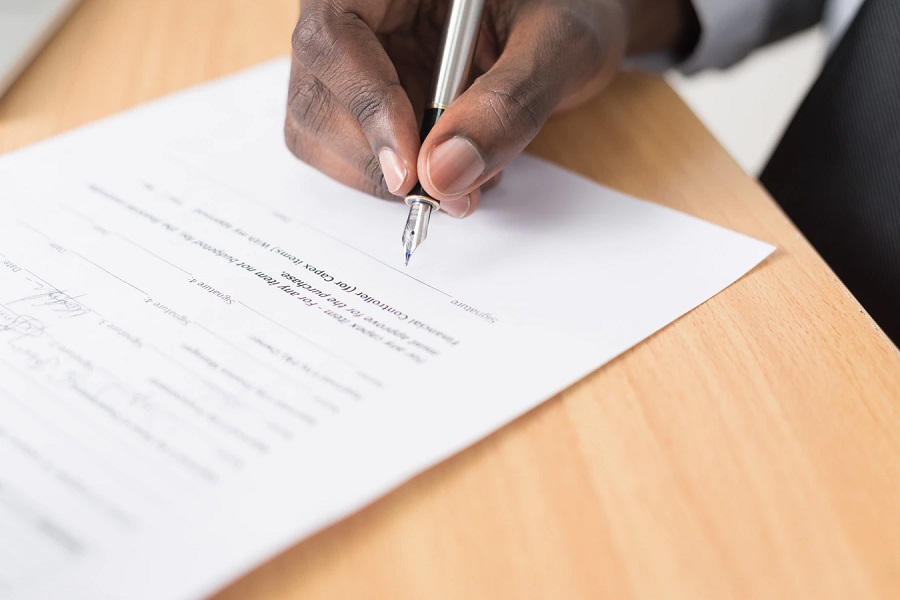How to Notarize a Power of Attorney

A power of attorney (POA) is a powerful legal document that allows someone to make important decisions about your life if you become unable to do so yourself. A POA can act on your behalf to sign financial paperwork, purchase a home, divide your property and decide where you’re going to live.
Why You Need a Power of Attorney
You might think you’re covered if you have a will and a medical directive, but these won’t cover you if you become physically or mentally incapacitated. In that situation, it’s important to know someone is acting on your wishes.
We are all living longer thanks to better health and advances in medicine. The population of older people is increasing. At the same time, that also means more people live long enough to develop Alzheimer’s, dementia, and other cognitive illnesses. If your parent, spouse, or sibling becomes incapacitated, who will handle their finances and other important personal matters? Who will make decisions about their life?
Protect Yourself and Your Loved Ones with a POA
If you think you’ll be able to, you’re wrong. Unless you have a POA that assigns you as your loved one’s agent, you may find someone else has the power to make those decisions. In the worst case, that person could be a hostile family member or a court-appointed stranger.
If your family member wants you to handle those things, they can assign you as the agent of their POA. Similarly, if you want to be sure someone you trust will take care of those things for you, you should assign your own POA to a trusted person.
Types of Power of Attorney
- Global or durable POA: A POA that gives someone access to your property and finances is sometimes called a global or durable POA. It can begin at any time.
- Medical POA: This allows your chosen agent to make decisions about your health care, including what type of medication to take, who to see as your doctor, and whether you will go into a nursing home. In most states, a medical POA is separate from a global POA.
- Limited POA: You can assign a limited POA to allow someone to act on your behalf only in specific situations. For instance, it’s common to assign a limited POA to a real estate agent who signs your closing paperwork for you. You might assign one to an accountant who’s filing your taxes.
- Springing POA: A springing POA begins when the person who assigns it becomes mentally or physically incapacitated.
Who Else Needs a POA?
According to the Women Who Money blog, you should also consider assigning a POA if you:
- Travel frequently.
- Are in the military.
- Enjoy high-risk hobbies.
- Have a dangerous job.
Assigning a POA will increase your and your family’s peace of mind in all these situations.
Can a Notary Notarize a Power of Attorney?
Yes, a notary can do this. You do not need an attorney to prepare this form.
Choose Your POA Agent with Care
Your POA agent should be someone you trust with your life. That’s not an exaggeration. A POA gives someone complete control of your life. It’s no wonder most fraud cases against older people involve the abuse of POA status.
According to estate planning attorney Emerita Mercado, it’s crucial to choose your POA agent with care: “This person has enormous power and responsibility for your life because he or she will be charged with ensuring your needs and wishes are met while you’re still alive. Choosing a power of attorney can be difficult and stressful. However, if done properly it can provide you with great peace of mind knowing your wishes and finances are on stable ground.”
Can You Avoid POA Abuse?
Unfortunately, abuses of the POA’s power happen. They can happen even among family members who previously trusted each other. For this reason, retirement expert Christine Fletcher recommends assigning two separate people as agents.
Writing in Forbes magazine, Fletcher notes, “While having two people serve can be cumbersome, it often is worth the extra effort to have an extra set of eyes on the use of the power of attorney. This can substantially reduce your risk and ensure your assets go to the people you’ve designated in your will.”
Proper Notarization Is the First Step

She also recommends assigning a conservator or guardian in case you become too incapacitated to make decisions about your assets. This is a good idea. If you don’t have one assigned, the courts can assign someone to the role, and that may not even be a family member.
A properly signed, notarized power of attorney is the first step in protecting you against future abuse, but it’s only part of your overall plan. You should consult an elderly law or estate planning expert to be sure your wishes are carried out.
What Do You Need to Assign a Power of Attorney?
You must:
- be 18 years old.
- sign the POA in the presence of a notary.
- specify whether the POA is springing, limited, durable, or medical.
Notarization ensures you are acting voluntarily and you’re of sound mind when you assign a POA. Notarization is the first line of defense against fraud. That’s why it’s important to get your POA notarized by a licensed, qualified notary who’s in good standing.
A POA May Not Cover Every Situation
A POA is a powerful document, and you might think it covers you in every situation. However, some situations require their own documentation. Here are some exceptions to the POA you may encounter.
- Social Security: If you want access to a family member’s Social Security records, you must fill out a specific form called the SSA-1696 Appointment of Representative Form.
- Medicare: If you want to represent your loved one in a Medicare case, you should have a notarized medical POA or a special form issued by Medicare.
- Financial institutions: Some banks and other financial institutions require more assurances before they will release funds from an account. This is to protect themselves from potential fraud. They may require further assurances from an attorney or an official record of the notarization. Using a licensed, qualified notary to affirm your signature is critically important.
Can You Reverse a POA?
You can reverse a POA at any time. You simply submit a written and signed statement that you’re revoking the POA. It’s a good idea to notarize this document, too. Give a copy of the signed, notarized letter to the agent, your attorney, and anyone else who needs to know. Here’s a sample form you can use.
Notarizing a Power of Attorney Can Protect You
Because they allow someone to make major life decisions, POAs can be abused. The agent has fiduciary duties, which means they must act in your best interests. An agent who doesn’t use a POA as you intended may face criminal charges of fraud, forgery, and theft.
Proper notarization is one of the best ways to protect yourself against forgery and fraud.
Steps to Preparing a POA
You can obtain a free POA form from almost any legal website. Download the form and fill it out as follows.
- On the first page, write your name, address, and the name and address of your agent.
- On the second page, name an alternate agent in case your original agent is unavailable or unable to help.
- Do not sign or date the document. Wait until you’re in the presence of a notary.
- A licensed, qualified notary signs the POA form and attaches a notary seal.
- The final two pages of the form list the agent’s duties and responsibilities.
Where to Get Power of Attorney Notarized
The most convenient, private, and secure way is to use remote online notarization (RON). Once confined to a handful of states, RON has become standard practice in the wake of the COVID-19 pandemic. Many states passed emergency legislation to allow online notarization. These documents now carry the same legal weight as documents notarized in person.
One of the best notarization platforms is OneNotary. Here’s why you should consider OneNotary for all your notary needs.
- States that permit online notarization require extremely stringent security protocols for remote notarizations. Many platforms, including OneNotary, exceed these security measures.
- You can conduct the signing session from the comfort and privacy of your own home or office. There’s no need to travel around town with your personal financial information.
- If you’re practicing social distancing, you can feel comfortable with remote notarization.
- OneNotary offers affordable rates and speedy service.
Benefits of Online Notarization

Online notarization, online mortgage closings, and other legal processes that don’t require in-person signings are increasingly common. Spurred on by the coronavirus pandemic, they have become popular alternatives as people realize how convenient they are. They have been a boost to the legal, real estate, and other professions.
Attorneys note that failure to notarize documents is one of the chief reasons legal cases get held up on the client end. The ability to notarize online will help move legal cases along. Online notarization makes it easy for people to get important legal documents like a power of attorney, even during business lockdowns, pandemics and other disasters.
How Much Will It Cost to Notarize a POA?
The cost is $25 for a single document with one certificate. Each additional seal costs $10.
Step by Step Instructions for Using OneNotary with Your POA Form
It’s easy to get your document notarized on the OneNotary platform. Just follow these steps.
- Complete the free registration at OneNotary.
- Schedule a time for your signing session.
- A notary will send you an invitation email.
- Open the link in the email to start your session.
- Follow the instructions to upload your documents.
- Complete the identification section.
- Sign your documents.
- The notary will fill out the appropriate section, sign the document and attach a seal.
- Download and print your documents.
- Keep copies of your signed, notarized POA in a secure place. Give copies to family members, your lawyer, your estate planner and other interested parties.
Count on Secure Notarization of Your POA
OneNotary uses state-of-the-art encryption and employs qualified, licensed notaries from every state. Your POA will be duly notarized in a secure environment, and you never have to leave your home.




